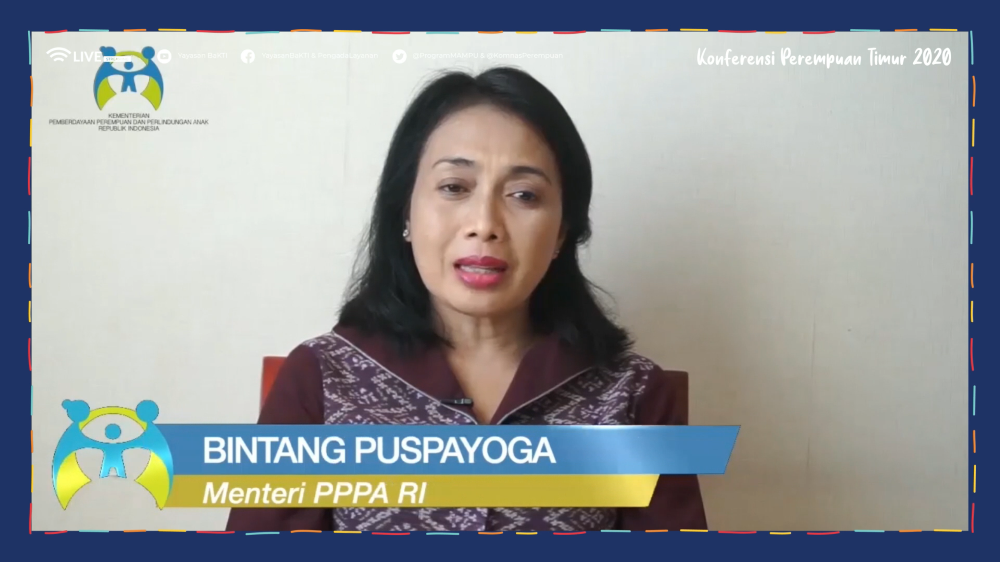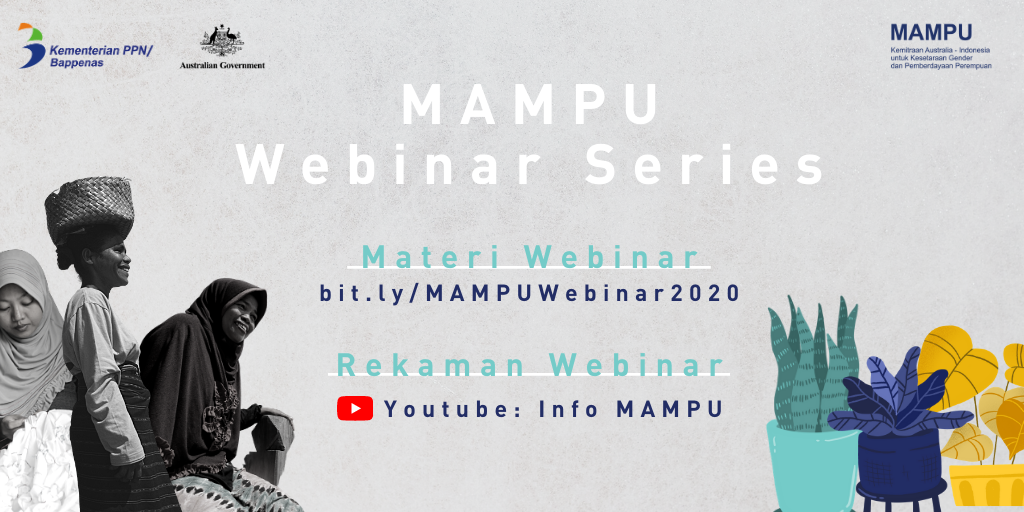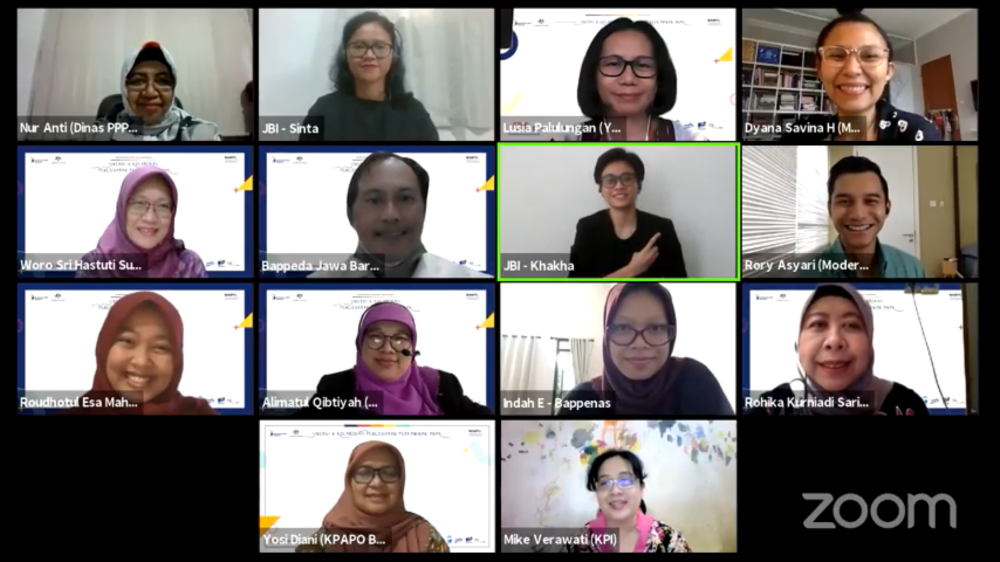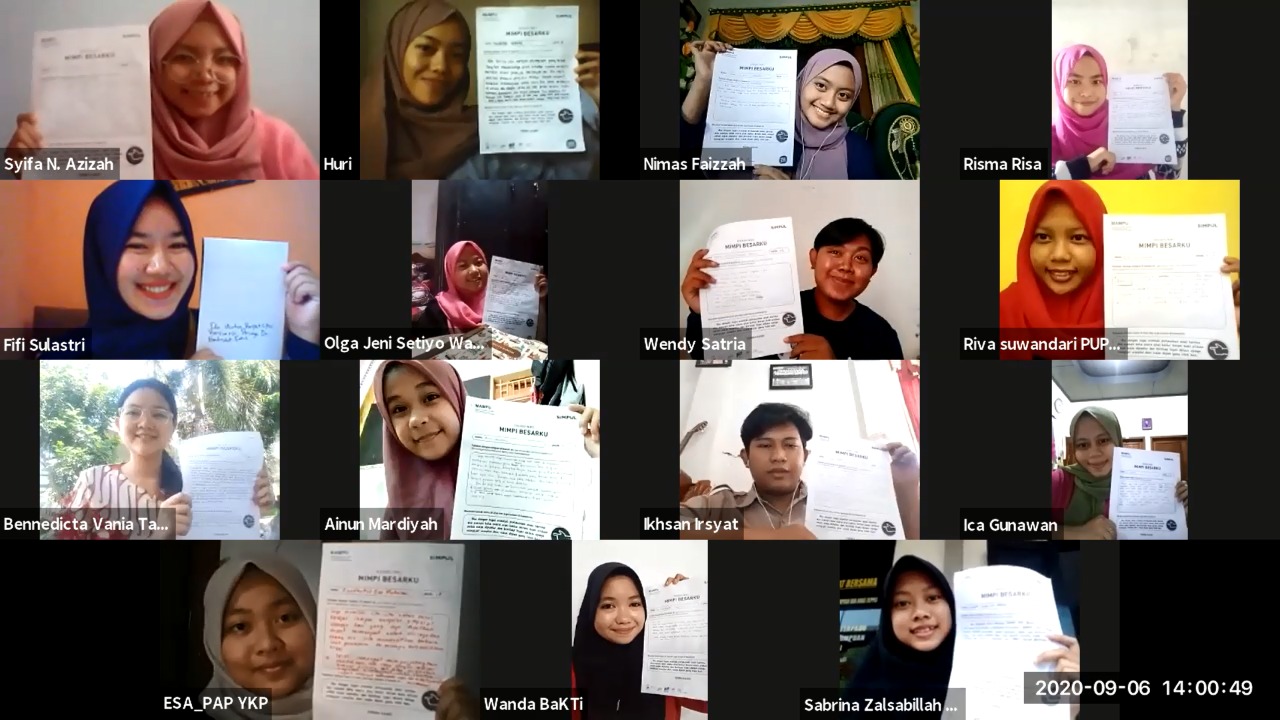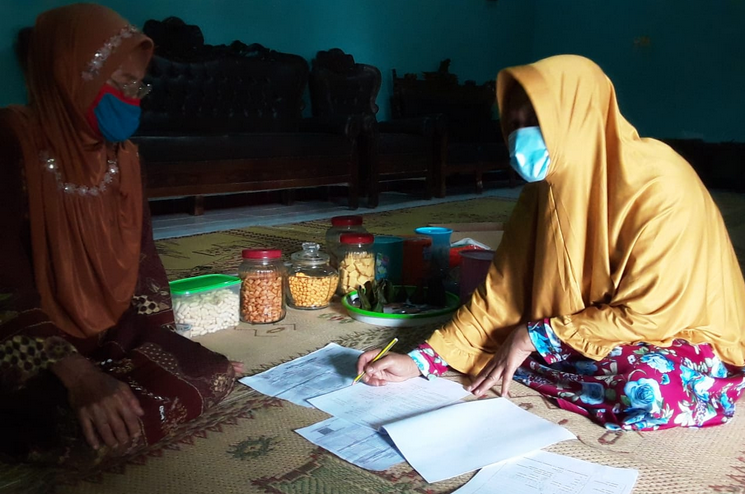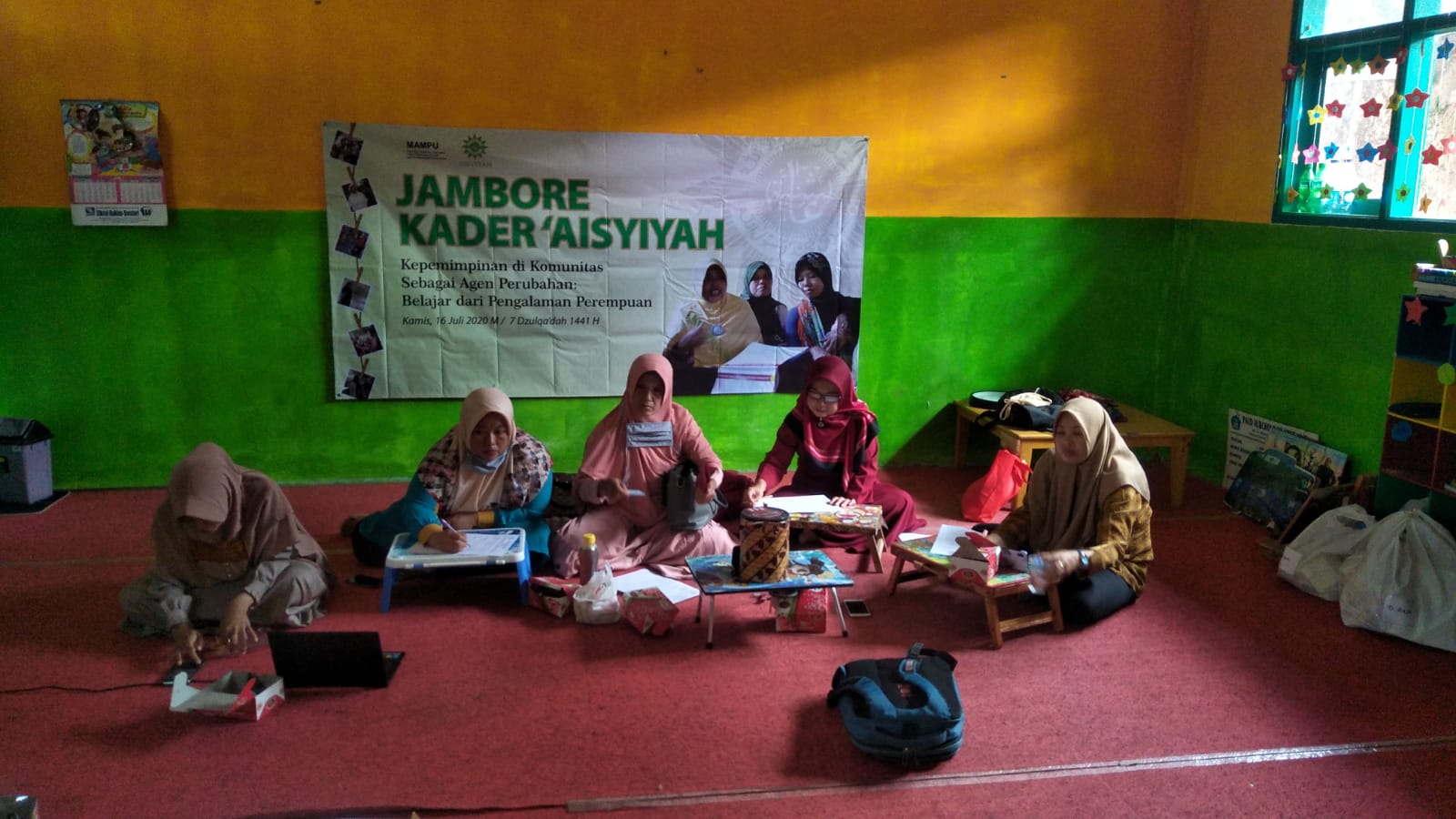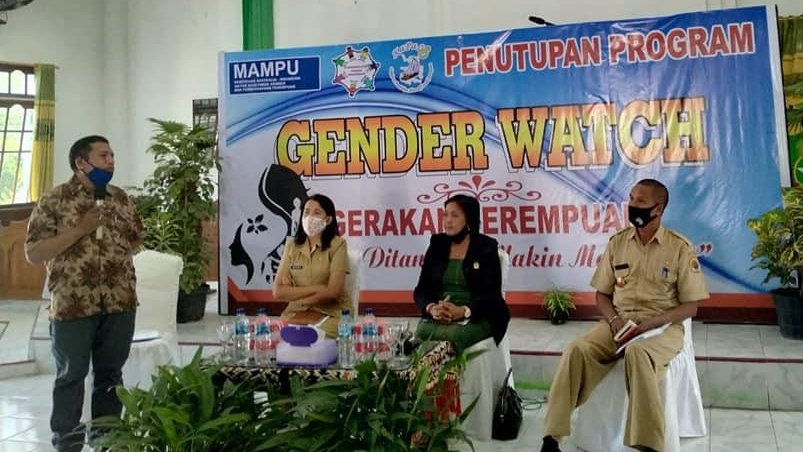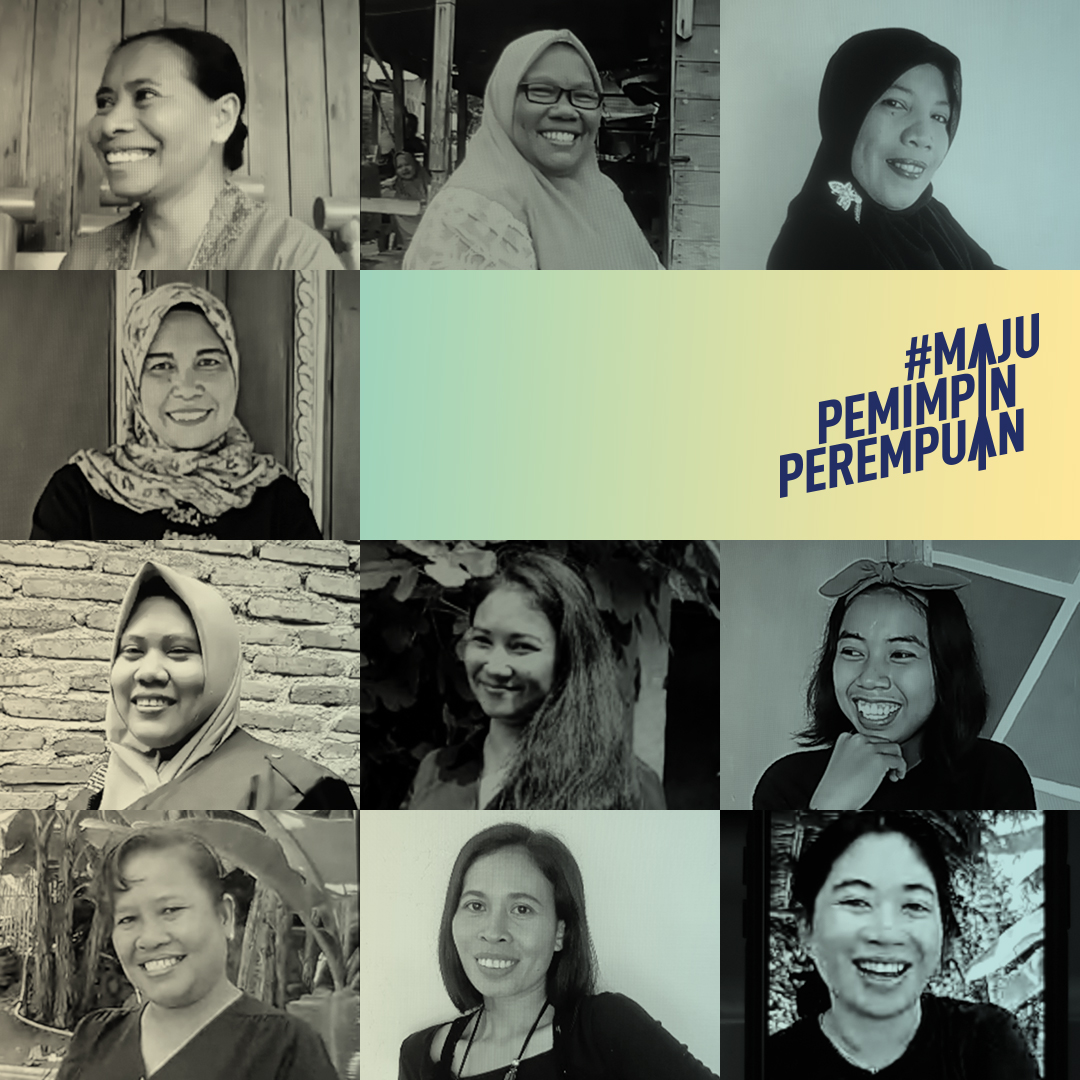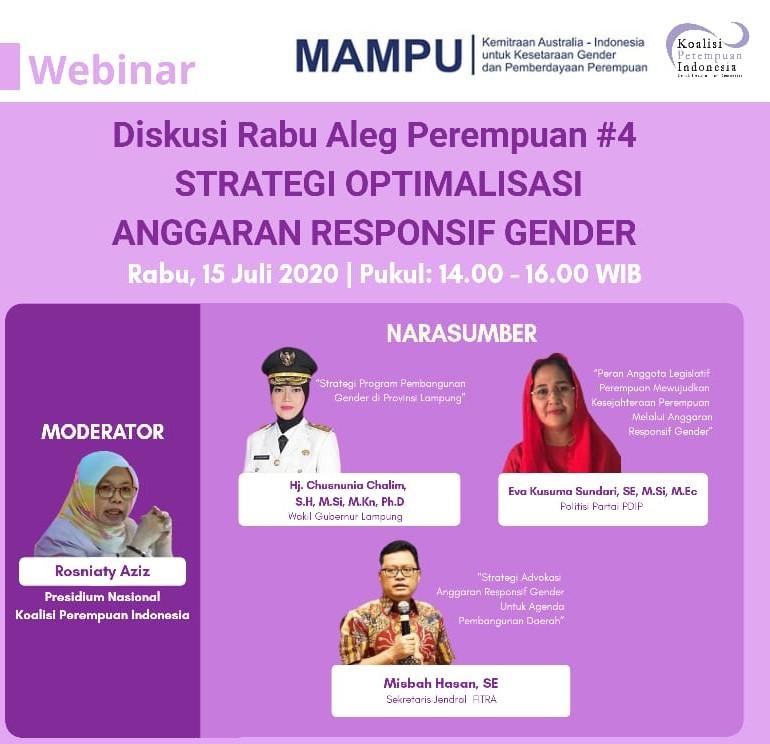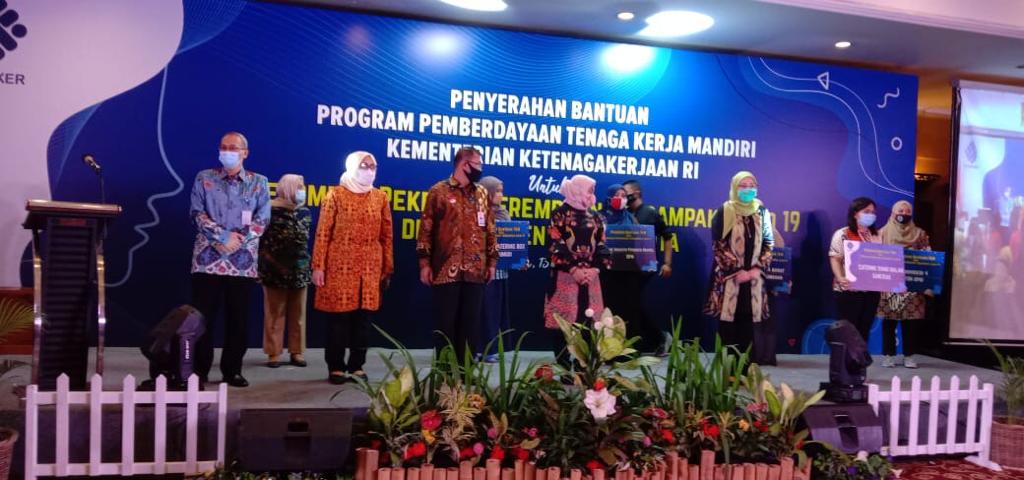Event
Women’s Schools in the Pangkajene Islands Remain Active amid the Pandemic
23 June 2020Author: Amron Hamdi
There are 18 Women’s Schools assisted by MAMPU Partners KAPAL Perempuan and Yayasan Kajian Dan Pembangunan Masyarakat (YKPM) in Pangkajene and Kepulauan Regency, South Sulawesi. The 507 women, on 10 islands, who are members of these Women’s Schools have been impacted by COVID-19 along with other people in the community. Women’s School members’ income has dropped, employees in crab processing companies have been laid off without pay, and domestic violence, as well as violence against children, is rife. The poorest people in the community have been the most affected by the outbreak.

However, Women’s School members have not stayed idle. They have been prepared to work hand-in-hand with residents to carry out prevention activities and attend to the needs of the women on the 10 islands.
When the central government declared an emergency response, women’s school members urged the village government to form a Task Force for the Acceleration of Prevention of COVID-19 Transmission. The government formed a task force consisting of representatives of the village government, health workers, and Women’s School members. The Task Force members are responsible for collecting data on the poor people and small enterprises affected by COVID-19, disinfecting public facilities, educating the public about COVID-19, and opening checkpoints on the jetty of each island to monitor the movement of people between islands. Women’s School members have also been involved in distributing food to the poor in Mattiro Uleng Village and Mattiro Baji Village. They also carry out other activities to assist women on the islands.
The Women’s School on Sabutung Island started a tutoring service to assist children with their school work. This activity originated from complaints of Women School members who were facing difficulties in assisting their children to do school work, and also difficulties in paying for internet data to submit assignments virtually. The tutoring service works in two ways; tutors visit the homes of the students or assist virtually, via the messaging app WhatsApp. Tutors also help to send assignments to schools which reduces children’s need for internet quota to upload the task. So far, the Women’s Schools have provided five tutors to help 17 children in the community.
The School has also opened a shopping delivery service for people who want to order goods from the mainland. Members of the
Women’s School take a daily shopping list from the community and buy the goods at the market, then distribute the goods to those who ordered them. This service has proved very helpful to people in the community by cutting down their transportation costs.

Another initiative has been making cloth masks. Women’s School members who have expertise in sewing, make masks and distribute them to the poor, the elderly, and the disabled at no cost. They simultaneously distribute a circular letter from the School explaining COVID-19 and how to prevent transmission. The letter contains the contact numbers of Women’s School members who can be contacted if there are questions related to COVID-19 and how to use the masks. Over 500 masks have been distributed to the communities on 10 islands.

School members also assist by receiving and distributing donations of cash and food from various parties, including from Saparinah Sadli, kitabisa.com and KAPAL Perempuan. Aid packages have been distributed to 80 poor families on 10 islands. Women’s School members also help poor people in the community to access free electricity tokens. School members read the news to find out how to submit requests for free electricity tokens via the internet. After successfully trying the method for themselves, they then immediately helped other poor people to access free electricity tokens from the government. 450 households on 10 islands have accessed free electricity.
The last program that the Women’s School members have initiated is a routine discussion about COVID-19 via telephone and Zoom. Some of the discussion themes include how to prevent transmission, what nutritious foods can boost immunity, and how to assist people who have experienced domestic violence. The discussions also counter ‘fake news’ about the virus.
In this difficult situation, the Women’s Schools have continued to fight, shoulder to shoulder, against COVID-19.




